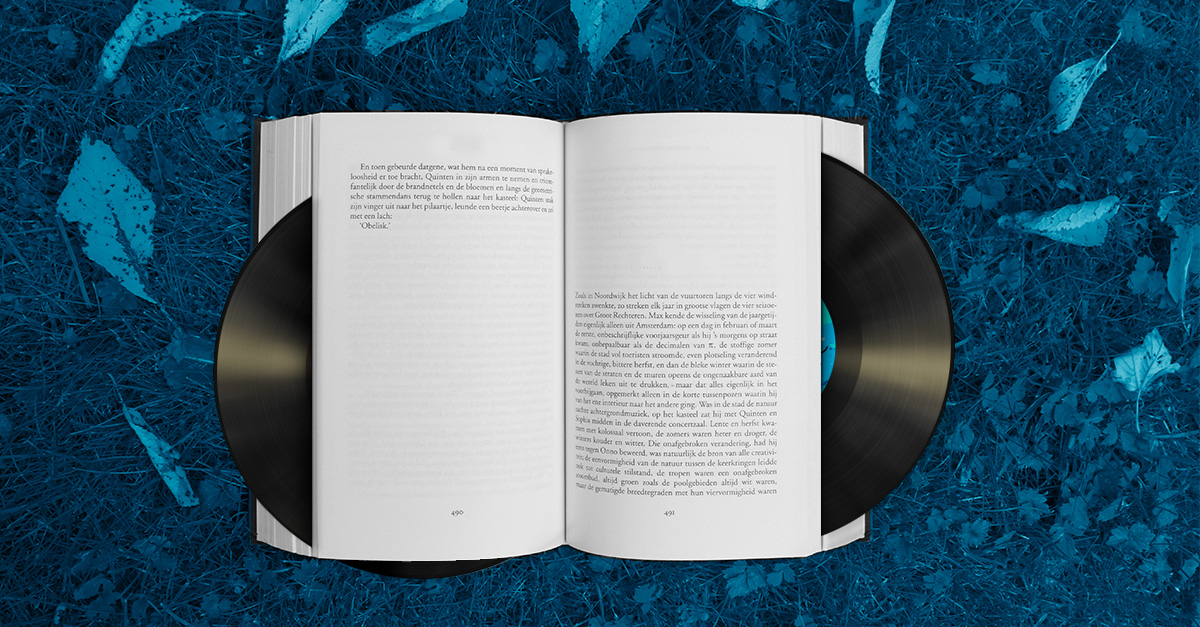5 FREE Ways To Promote Music Long Before It’s Released
In this piece Patrick McGuire details the importance of a solid pre-release program, and how it's necessary for building hype and excitement, growing your audience, and ensuring your release makes the biggest splash possible.
_____________________________________
Guest post by Patrick McGuire from the Landr blog
Promoting your new music shouldn’t start on the release date.
Waiting until your music is released to start promoting is way too late. Effective music promotion starts months before it’s out.
A solid pre-release campaign can build excitement for your release, grow your audience, and turn casual listeners into real fans.
But where do you even start? And more importantly, how do you make it work while still having time to finish your music?
Here’s five tips to help you get the most out of your promotion efforts during the time leading up to your release.
But first…
Set Your Release Date
Whether your music is finished or not, you need to set your release date.
Setting a release date to aim for has tons of benefits, like helping you decide how to manage your time and providing some healthy pressure to finish.
Once your music is mixed and mastered, use digital distribution to set a custom release date for your project on all major streaming platforms including Spotify and Apple Music.
Just fill out your custom release date on the fourth step of the LANDR release builder, and your music will be live in all stores on the same day—just be sure to leave enough time in advance.
It’s possible to choose a custom release date as early as 7 business days in the future, but give as many days as you can (2-3 weeks) for a better chance of your release being live on the same day.
1. Find the story behind your new music and tell it
Every album, every song, every chord has a story inside it. Your promotion efforts should tell it.
Figure out what’s interesting and unique about your new music and tell your story in the lead up to your release.

Examples like Bon Iver’s hunting cabin or Tennis’ husband and wife sailing trip tale show that stories can add a whole other layer to your music.
Promoting your own music can feel pushy or overwhelming. Telling your story makes it more personal and engaging.
Promoting your own music can feel pushy or overwhelming. Telling your story makes it more personal and engaging.
To figure out your story, ask yourself:
- What inspired me to write my music?
- Was writing it in response to something significant that happened in my life?
- Where was I when I wrote and recorded it?
- What are the ideas behind my music?
- What’s the connection between me, my instruments, bandmates, and collaborators?
These are all good questions to get you thinking about the story behind your new music. Let everything you discover guide your music promotion leading up to your release.
At the end of the day, your music should speak for itself. But telling your story helps you keep your promotional efforts personal and genuine—2 things most music promotion needs more of these days.
2. Have a new bio and press release written and ready to go
You’ll need to have an up-to-date music bio and press release written and ready to send to venues, blogs, press outlets or playlistcurators.
It’s important to finish your bio before your music comes out and not after.
Why? Because whether you’re pitching to radio or your local newspaper, all music media outlets plan features and promotions months in advance.
Here’s some stuff you’ll want to make sure gets included in your press release:
- An announcement of your release (link out to where the music can be streamed)
- Short band bio
- Contact info
Writing about yourself can be tough. Not sure where to start with your music bio? Read our music bio guide for everything you need to update yours.
3. Compile a list of radio, blog, peer and press contacts
Okay, now you’ve got a narrative around your new music along with a great bio and press release to go along with it. Who are you going to reach out to?
Answering this question takes either a lot of time or money. PR campaigns can be a lot of work. That’s why they’re so expensive when you get someone else to do it…
But with the right strategy, hard work and time, you can—and probably should—go it alone for promoting your release.
To get the most out of your promotion efforts, put a list together of everyone you want to pitch your new music to long before your release date.

This can be radio hosts, blogs, magazines, playlist curators, or even other bands that you’d like to cross-promote with.
Give yourself a few months to start the process. This will ensure there’s plenty of time for pitching, follow-up and other correspondence.
Response times and availabilities from the people you reach out to can really vary, so give yourself plenty of time to manage your promotion efforts.
Use your time to create real interactions with the people you’re speaking to. Don’t rely on cold calls or bulk emails. Try to reach out to a more manageable list and create real connections.
4. Update your website, mailing list and social media accounts
This one is obvious, but it really is important when promoting new music.
There are so many ways to listen these days. Fans are able to reach your music from many different directions and sources.
So make sure these sources are all up to date ahead of your release. Draft new announcements for your social media bios before your release date.

Don’t try and scramble all over the place the day of your release while trying to freestyle your messages.
Make sure everything, and I mean everything about your band or music online is up to date.
Make sure everything, and I mean everything about your band or music online is up to date.
This can and should include your:
- Website
- Mailing list
- Spotify artist page
- Pinned tweet
- SoundCloud bio
- Promolinks page
- Bandcamp bio
- Facebook artist page
- And all the other places your listeners can learn more about you and your music
Make sure all your information online is updated. This will give your fans the best chance to learn about your new music no matter how they listen to or follow your music.
5. Match your music’s story with a visual one
Video, photos, images and even color schemes are all part of the lead up to releasing.
They help to reinforce your story and build up some momentum during your lead-up time.
The visual element of an artist’s music has become more important than ever in the current music industry.
It can all be a bit overwhelming. But knowing the story behind your music will help you come up with a great visual element for your music promotion:
Think posters, banners, merch, profiles, website design and what you post on your social media profiles.

Working with an artist to help shape the visuals behind your promotion materials months before your release can help.
But remember, even simple posts, like your new tracks playing in your studio, a quick live jam, photos of your process or anything else that’s part of your new release are all simple ways to build momentum behind your go live date!
Documenting and sharing your process is one of the most personal and engaging ways to share your music. So try to tell your story with your visuals as well.
Steady Wins the Race
The lead up to your release takes quite a bit of planning—something musicians aren’t always known for…
But with the right patience and focus, taking care of these 5 parts of promoting a new release will put you ahead of the curve for your next release.
In the end, your music will always speak for itself. But using your lead up time in smart ways will put in more ears to begin with.
Great advice!
Question:
How to avoid “leaks” of your album, when you are sending it out to press, blogs, reviewers, and so on?